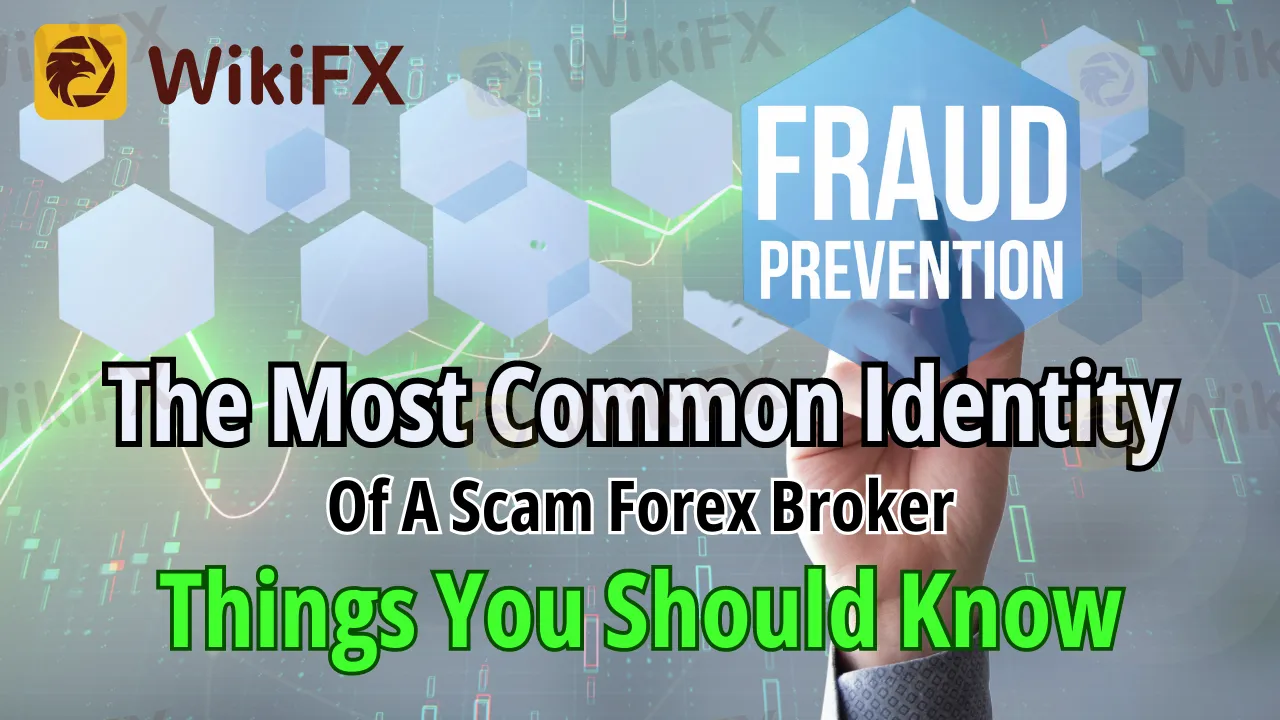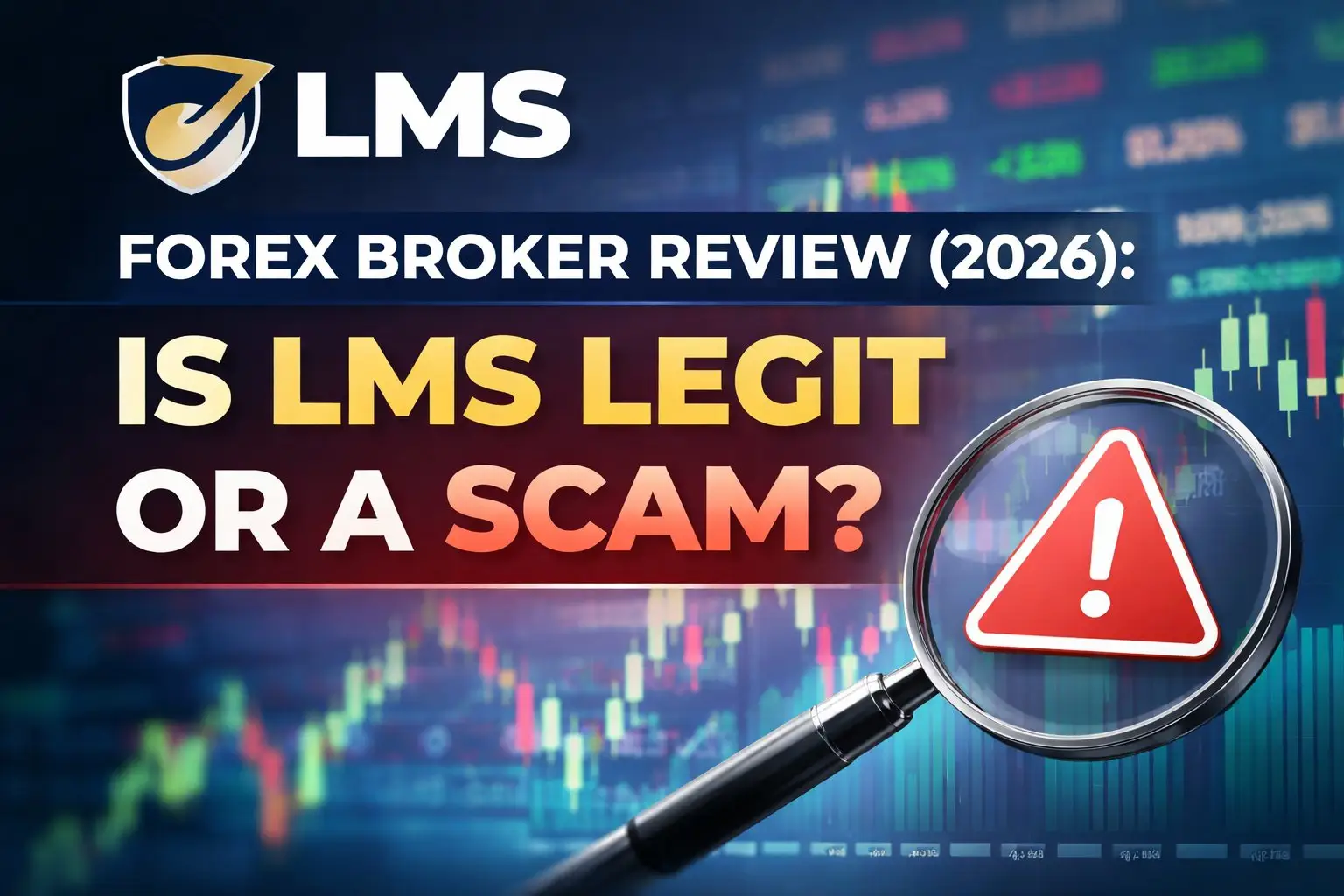Abstract:Learn to identify scam Forex brokers with key red flags, probing questions, and how platforms like WikiFX can help safeguard your investments. Stay informed and trade confidently.

In the age of digital finance, the foreign exchange market, often known as Forex, has opened up a world of opportunities for traders globally. But just as there is potential for significant profit, there lies an equally vast realm of risks. Not all of these risks come from market volatility; some are man-made, carefully crafted by scam Forex brokers aiming to deceive and exploit unsuspecting traders. As the old saying goes, “Forewarned is forearmed.” In this guide, we will delve into the most common identities and deceptive tactics employed by these fraudulent brokers, equipping you with the knowledge to safeguard your investments and navigate the Forex landscape with confidence.
Key Identifiers of Scam Forex Brokers
The allure of the foreign exchange (Forex) market, with its promise of quick returns, has drawn in countless traders from around the world. Yet, where there's money, there are invariably those looking to exploit. Scam Forex brokers have become a sophisticated lot, often presenting as legitimate entities, making it imperative for traders to be well informed. Here, we'll uncover the most prevalent traits and tactics of these deceitful brokers.

Too Good To Be True Offers:
Lack of Regulatory Oversight:
Unusual Deposit & Withdrawal Policies:
Manipulation of Trading Platforms:
Artificially generated price spikes or slippage.
Freeze or interruptions in trading, especially during key market events.
Ambiguous Terms and Conditions:
Aggressive Marketing and Cold Calling:
Lack of Transparency in Pricing:
Questions to Reveal Scam Forex Brokers
When dealing with potential scam Forex brokers, asking the right questions can not only help you verify their legitimacy but also indicate to them that you're vigilant and well-informed. Here are some probing questions you can ask to test their credibility:

Regulation and Licensing:
“Which regulatory body oversees your operations?”
“Can you provide me with your registration or license number?”
“How can I independently verify this with the regulatory authority?”
Operational Transparency:
“How do you handle slippage and re-quotes?”
“Can you detail your order execution policy?”
“Do you trade against your clients?”
Financial Queries:
“Where are client funds held? Can you name the bank or custodian?”
“How are my funds segregated from the company's operational funds?”
“How do you handle negative balance protection?”
Platform and Trading:
“What kind of trading platform do you use? Is it a recognized industry platform?”
“Can I access a full history of spreads for the past few months?”
“How do you ensure the security and integrity of your trading platform?”
Pricing and Costs:
“Are there any hidden fees or costs associated with trading or withdrawals?”
“Can you provide a detailed breakdown of your fee structure?”
“How do spreads compare during normal and volatile market conditions?”
Withdrawal Policies:
“What is the typical processing time for withdrawals?”
“Have there been any recent changes to your withdrawal policy or fees?”
“Can I speak to someone who handles withdrawals directly?”
Company Information:
“How long has your company been in operation?”
“Who are the key members of your leadership team, and what are their backgrounds?”
“Can you provide references from other clients or partners?”
Customer Support and Grievances:
“How do you handle customer complaints or disputes?”
“Do you have a defined process for arbitration or resolution?”
“Can I get a copy of your customer service charter or policy?”
Remember, a genuine broker will have clear, transparent answers to all these questions and won't shy away from providing verifiable information. On the other hand, evasive or vague answers, hostility, or attempts to deflect these queries are red flags. Always trust your instincts and conduct due diligence before making any investments.
How WikiFX Can Help You With Such Scam Offers
WikiFX is a platform dedicated to providing users with information and insights about forex brokers. While the platform can help do preliminary checks, it's important to remember that no single platform should be the sole source of your research. That said, here's how WikiFX can assist you in navigating potential scam offers:
Broker Ratings: WikiFX rates brokers based on their regulatory status, operational history, and public perception. A low rating might indicate that the broker has a dubious record or lacks proper regulatory oversight.
Regulatory Information: WikiFX provides details about a broker's regulatory status. Knowing a broker's regulatory body can help in assessing the legitimacy of its operations.
Operational History: Brokers with a long and credible history of operations are less likely to be scams. WikiFX provides insights into how long a broker has been in business and any notable events in its history.
Public Reviews: Users can leave reviews and ratings based on their experiences with brokers. This feature allows potential traders to gauge the reliability and reputation of a broker from those who have dealt with them firsthand.
News and Updates: WikiFX offers news related to forex brokers, which can be particularly helpful in keeping up-to-date with any developments or controversies related to particular brokers.

Platform and License Verification: WikiFX has a feature that allows users to verify the authenticity of a broker's trading platform and check their licensing details.
Broker Blacklist: The platform maintains a list of brokers who have been flagged as potential scams or have demonstrated unethical behavior. Checking this list before engaging with a broker can be a crucial step.
Seminars and Events: WikiFX sometimes hosts events or seminars aimed at educating traders about the forex market and potential pitfalls, including how to identify and avoid scams.
While WikiFX offers a wealth of information, traders should use it as one of many tools in their arsenal. Always cross-reference information from multiple reliable sources, and remember that personal due diligence is essential before making any financial decisions.

Conclusion:
Navigating the intricate world of Forex trading requires not only a keen understanding of market dynamics but also an acute awareness of the myriad of brokers vying for your attention. As the digital landscape broadens the playing field, the potential for fraudulent activity rises in tandem. Platforms like WikiFX can be instrumental in providing preliminary insights, but they should complement a broader strategy of due diligence. By arming oneself with the right questions and maintaining a skeptical and informed approach, traders can significantly mitigate the risk of falling prey to scams. In the realm of trading, knowledge truly is the most potent defense.
Get the WikiFX App on your smartphone for the latest updates. Grab the App at: https://www.wikifx.com/en/download.html.














